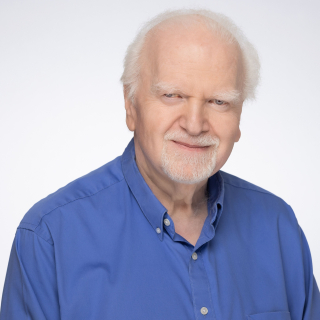Meet Dr. Bernard Robaire
Written by Dr. Camilo Pena-Bello (SSR Diversity Committee) in honor of Disability Pride Month.
July is a Disability Pride Month. The SSR Diversity Committee is participating in this celebration. For this, Dr. Camilo Pena-Bello (member of the SSR Diversity Committee) interviewed Dr. Bernard Robaire, Professor in the Department of Pharmacology and Therapeutics and the Department of Obstetrics and Gynecology at McGill University, Quebec, Canada. Enjoy the reading.
1. What is your current position, and what does it entail?
I am a Distinguished James McGill Professor in the Departments of Pharmacology and Therapeutics and of Obstetrics and Gynecology at McGill University. The position entails teaching undergraduate, graduate and medical students, doing research (getting grants, publishing papers, supervising graduate students and postdoctoral fellows) and providing service to the Departments (e.g., service on committees), the University (e.g., serving on the Faculty Council and University Senate), and scientific societies (e.g., committees, holding positions as officers, serving on journal editorial board, grant review panels).
2. Can you talk a little bit about yourself? Where are you from? What first attracted you to the world of science? And how did you get to be in your current position?
I was brought up in Paris and moved to Los Angeles when I was 11 years old. I went through junior high school and High school at Fairfax in LA. Since I was six, I wanted to be a scientist, and by the age of 13, I had decided to become a pharmacologist. My journey began at UCLA, where I earned a B.A. with a major in Bacteriology and a minor in Philosophy. After that, I moved to Montreal for my PhD in Pharmacology and Therapeutics at McGill University and then did my Postdoctoral Fellowship at Johns Hopkins University with Dr. Larry Ewing.
While doing my Postdoctoral Fellowship in Baltimore, I decided to go back to Montreal. Dr. Naftolin was developing a Reproductive Biology Research Unit in the Department of Obstetrics and Gynecology, and I wanted to be part of that exciting project. After some discussions, I was appointed to a position that was split 50- 50 between his department and Pharmacology and Therapeutics on an 18-month contract. During this time, I was expected to generate my own salary through competitive grants.
Since then, my research interests have focused on the structure, function, and regulation of the epididymis, the mechanisms of androgen action, the aging process of the male reproductive system, and how drugs and environmental toxicants affect both male reproduction and progeny outcome. I have been fortunate to be continuously funded to pursue these interests over the years..
3. What are you most excited to do this year?
Interacting with students and discussing their research as well as breakthroughs taking place every day in our field have been and continues to be tremendously rewarding. I feel that my greatest contribution has been the mentoring of an amazing group of undergraduate and graduate students as well as postdoctoral fellows. My plan is to continue teaching and have my remaining doctoral students complete their thesis.
4. Are there ways in which you think your disability has affected your perspective or career trajectory?
My parents’ attitude that I could do anything I wished to do in spite of my poor eyesight (as an albino I have 20/200 vision). I have had many stumbling blocks along the way, including while in junior high school, university, and graduate school, but few to none during my academic career.
5. What words of inspiration would you like to share with the future generation of scientists, especially those coming from diverse backgrounds?
Treat all those around you with respect. Learn to listen. Believe in your abilities. Persevere when obstacles are placed in front of you. Don’t be afraid to ask for help.


